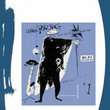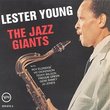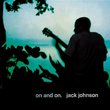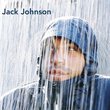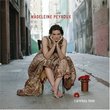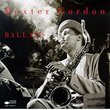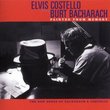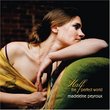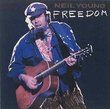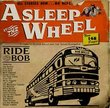| All Artists: Lester Young Title: Lester Young Trio Members Wishing: 2 Total Copies: 0 Label: Polygram Records Original Release Date: 4/19/1994 Release Date: 4/19/1994 Genres: Jazz, Pop Styles: Cool Jazz, Swing Jazz Number of Discs: 1 SwapaCD Credits: 1 UPC: 731452165022 |
Search - Lester Young :: Lester Young Trio
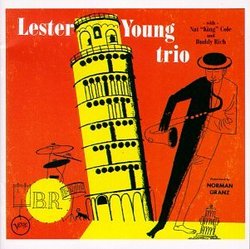 | Lester Young Lester Young Trio Genres: Jazz, Pop
24bit digitally remastered Japanese limited edition in an LP-style slipcase. |
Larger Image |
CD DetailsSynopsis
Album Description 24bit digitally remastered Japanese limited edition in an LP-style slipcase. Similar CDs
Similarly Requested CDs
|
CD ReviewsGreat Music - Bad Sound Quality R. White | USA | 03/08/2007 (3 out of 5 stars) "This album is great as all the previous reviews mention - and the music is excelllent as described. However, the sound quality is pretty bad, mostly it's the pops and scratches of the 78's these were recorded from (as noted in the CD literature). I am quite accustomed to listening to 78's and generally don't mind all the typical noise that comes from their wear and age, in fact I even like the noise as I feel it really adds to the quality of the 'old sound' of the music. In this case though all the pops and scratches actually impose on the music, often competing with it, at times even distorting the quality of instrumentation. Such a shame for such a lovely selection of music. I just have to believe their is some way the recording engineers could have reduced all this noise, from the sounds of it they didn't even try. Buy this at your own risk - it is music worth having, but be aware of the noise impositions that vary from moderate to worse from track to track." All-time Classic Pres KeithCT | 04/11/2007 (5 out of 5 stars) "This album is an unqualified masterpiece. Lester Young is exceptional and this is a rare opportunity to hear Nat "King" Cole play pure jazz. People who know him from singing "Unforgettable" etc may have no clue just how great a piano player he was and how great his jazz chops were. These two are a perfect match, and among all of Lester Young's wonderful albums I tend to agree with the reviewer who said this is the best. A word on sound quality: one of the reviewers downgraded this cd to 3-stars based on what he perceived to be awful sound. He exaggerates. This is a five star album, and the pops and scratches make this sound like an older jazz record. Jazz doesn't need to be squeaky clean to be enjoyed. Many jazz listeners still buy LP's specifically to hear the kind of sound quality captured on this CD. You want great music? Buy this cd" Great music from the 40s James | Indianapolis, IN United States | 12/01/2007 (3 out of 5 stars) "Great music, terrible sound quality. The sound is the absolute worst in my extensive collection of jazz CDs. From late 1942 until early 1944, The American Federation of Musicians, fearing the effect of radio on live performance opportunities, instituted a ban on recording in pursuit of a percentage on radio transmissions. Any unsanctioned recordings made throughout 1943 were poor owing to the fact that they were produced on portable disc-cutting machines and wire recorders, a precursor to tape. The war effort also interfered with pressing and sales due to rationing of raw materials. The 1943 "bootlegs" are rare and poor sound quality is the norm. The four cuts from 1943 are one group of only two recordings from this year that I own, the other being "The Original James P. Johnson Piano Solos" originally recorded by the renegade Asch label now remastered on Smithsonian Folkways.
It is not surprising that cuts 11-14 are sub-standard. But what is the excuse for cuts 1-10 which the liner notes list as recorded in 1946? In a day when remastering restores sound quality, there is no reason for the poor quality of these essential recordings. Young, Cole, Rich, Gordon, and Edison deserve better treatment! My advise: Wait until this is remastered before you purchase. Download a song or two now just to sample the terrific music." |

 Track Listings (14) - Disc #1
Track Listings (14) - Disc #1